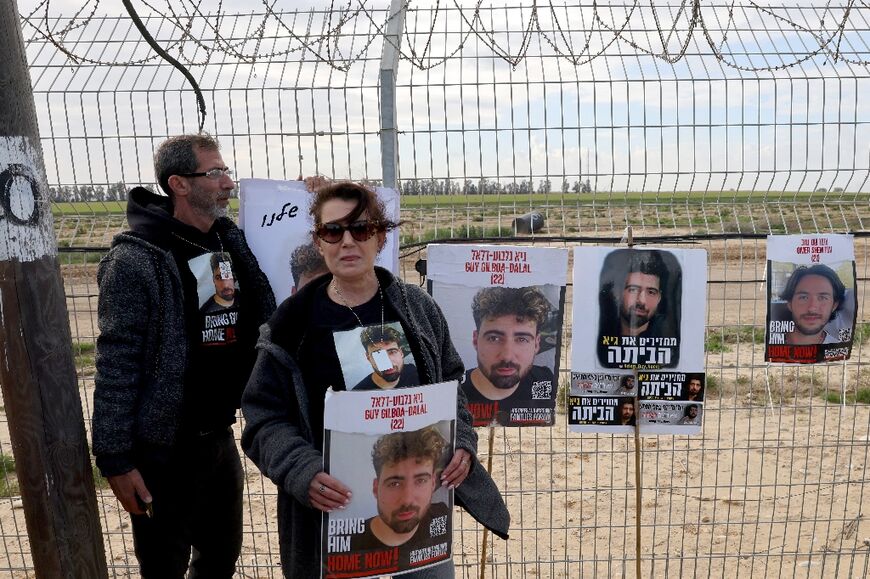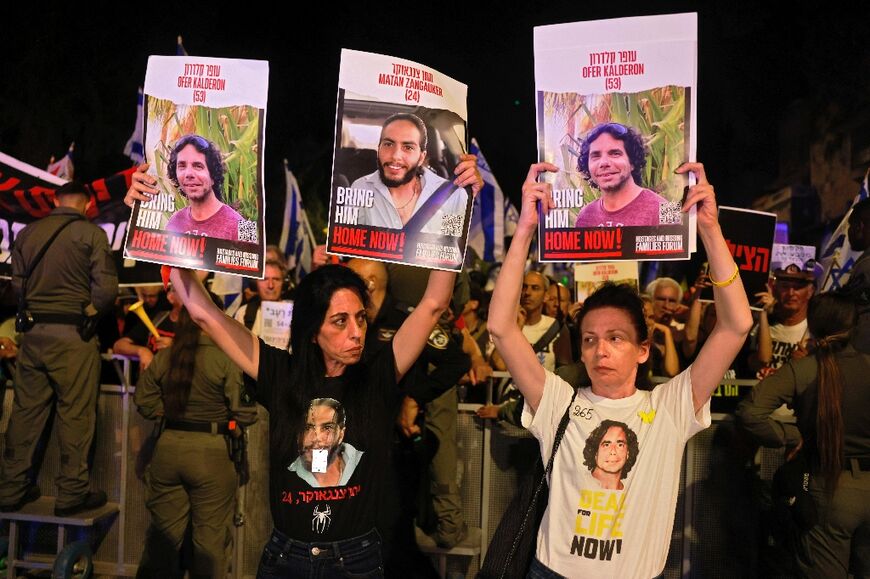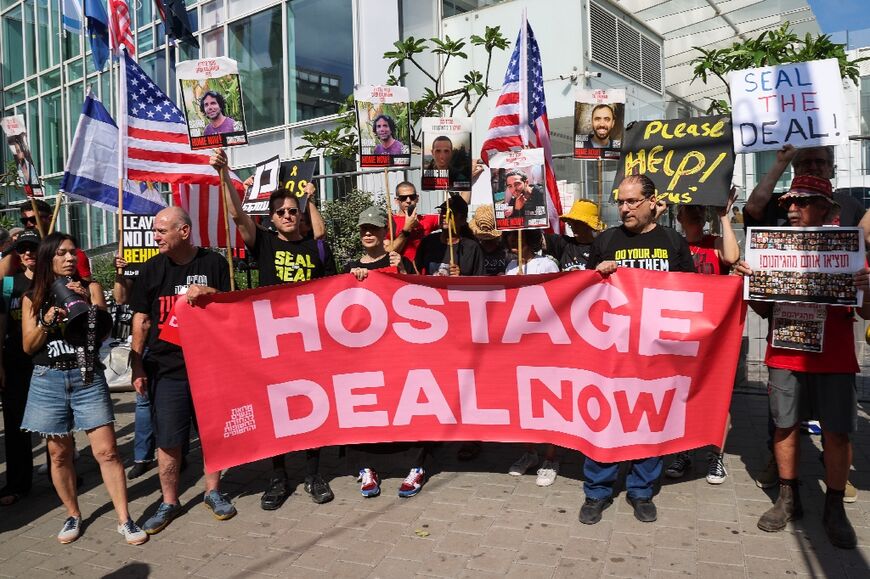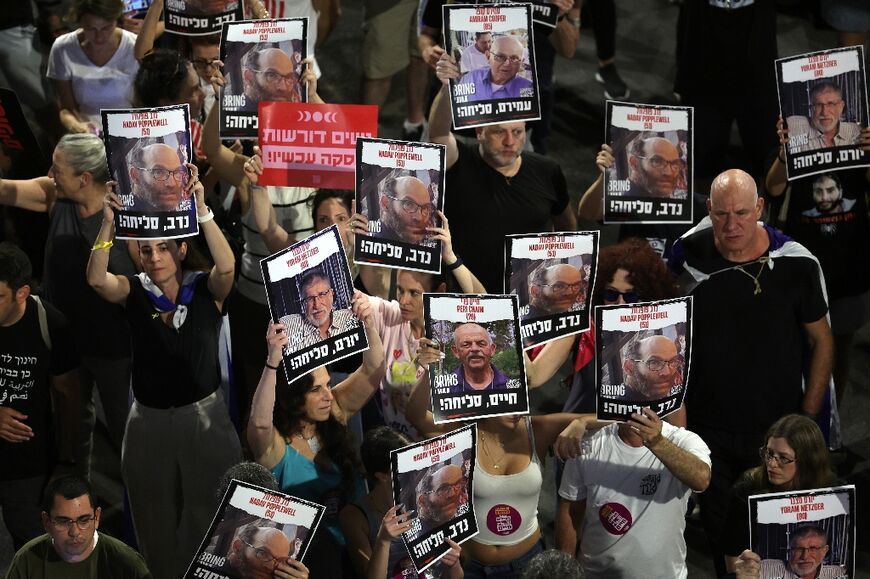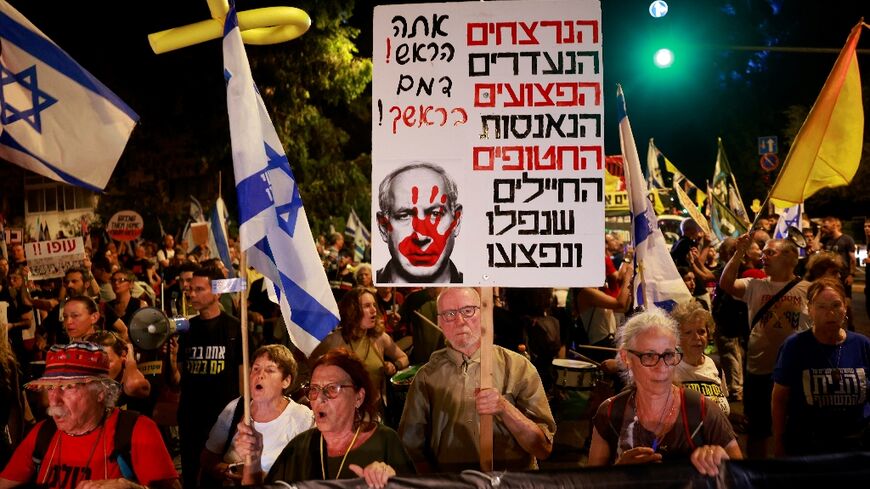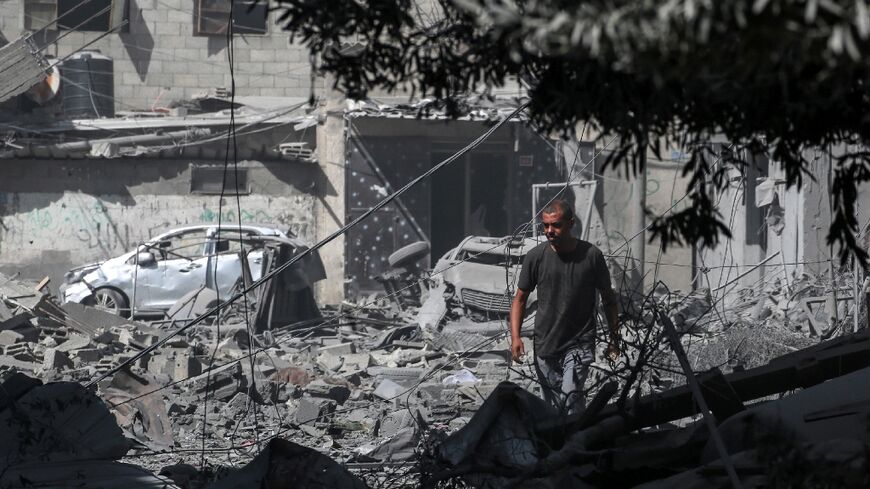Israel hostage families push for Gaza truce amid new talks

Nine months after militants dragged Carmel Gat into Gaza, her family is part of a growing public and political campaign to press the Israeli government to use renewed negotiations with Hamas to end the nightmare of scores of remaining hostages like Gat.
Stop-start efforts to secure a ceasefire and a hostage release deal resumed on Friday when an Israeli negotiator met Qatari mediators. The new diplomacy has buoyed anguished hostage families.
"My hopes are up," Shay Dickmann, Gat's cousin, told AFP. "I'm feeling really positive about this deal."
Israel says there are still "gaps" in how a ceasefire can be implemented but negotiators will return to Doha in coming days. Defence Minister Yoav Gallant told hostages' families this week: "We are closer to a deal than ever before."
Dickmann is nonetheless well-acquainted with the pain of false hope.
In November, just weeks after Gat was seized in the October 7 attacks, Dickmann was preparing a homecoming dinner for her cousin.
But as that one-week truce drew to an end, Gat would not be among the 105 hostages who returned, having been scheduled for release on the eighth day, according to Dickmann.
The war has since inflicted a devastating toll while hostages' families have watched months of stymied diplomacy.
"Our government needs to realise getting the hostages home now is the most important thing," Dickmann said.
Israeli Prime Minister Benjamin Netanyahu has consistetly opposed any deal that allows Hamas to survive.
But with patience fraying, pressure is mounting as families tire of arguing their loved ones' lives are worth more than declaring victory over Hamas.
"We need a ceasefire now and to deal with Hamas later," Elon Dalal, whose son Guy Gilboa-Dalal was kidnapped from the Nova music festival, told AFP.
- Hostages first -
Polls indicate a growing majority of Israelis support prioritising getting the hostages home over defeating Hamas. Weekly demonstrations for the hostages and against the government are also growing.
The war sparked by Hamas's October 7 attack resulted in the deaths of 1,195 people, mostly civilians, according to an AFP tally based on Israeli figures.
Militants seized 251 hostages during the attack, 116 of whom remain in Gaza, including 42 the military says are dead.
Israel's retaliatory military offensive in Gaza has killed 38,098 people, according to data from the Hamas-run territory's health ministry.
Netanyahu faces tough questions over the military benefits of continuing the war.
"The longer the war rages on at this intensity the more likely Israeli hostages will be killed," said Andreas Krieg of King's College London's School of Security Studies.
He added that top commanders have made it clear "that militarily there is nothing more to be won in Gaza".
The New York Times this week reported that some Israeli generals see a truce as the best option for saving hostages, even if that means letting Hamas survive, for now.
Netanyahu responded by saying Israel would not give in to "defeatism" and vowed to fight on until Hamas is destroyed.
- 'Price of war' -
Through the demonstrations and a pervasive "Bring Them Home Now" poster campaign that spans Israel's international airport, bus stops and malls, the hostage families have kept intense pressure on Israeli authorities.
But Netanyahu faces competing strain from far-right members of his coalition who have threatened to collapse the alliance if he ends the war.
"They are against a deal. They say our children are the price of war," hostage father Dalal said.
The computer programmer left his job to advocate full-time for his son's release. He wore a t-shirt bearing Guy's face and name, but with the age crossed out as Guy has spent so long in captivity he is no longer 22.
"All I want is (for) my son to come back and he is not here, so maybe the government has not done enough, or not done the right things," Dalal said.
The army has rescued only a handful of hostages alive, including four last month in a deadly operation on a Gaza refugee camp.
Afterwards, Israeli army spokesperson Daniel Hagari said: "We will not be able to return all the hostages through rescue operations."
The grim prospects for remaining captives have breathed new life into calls for a negotiated truce.
"I know it is possible to get our loved ones back through a deal," said Dickmann, whose sister-in-law was among the hostages freed in November.
"Every person that comes back is the whole world to someone."


